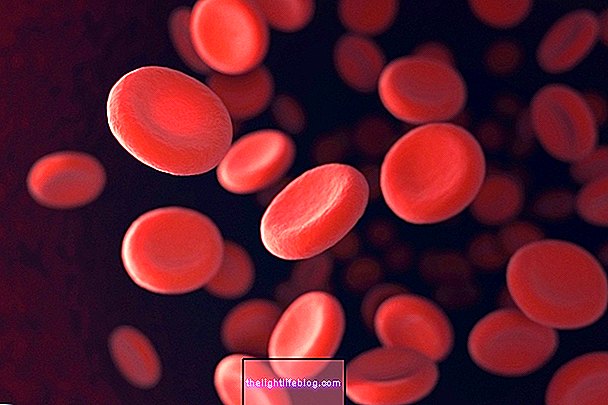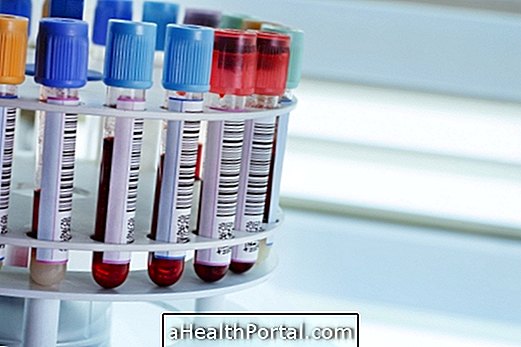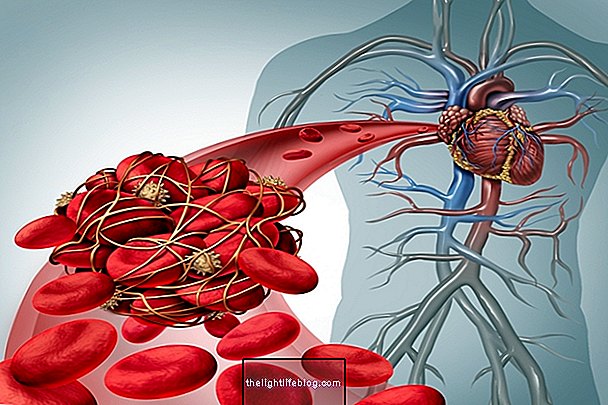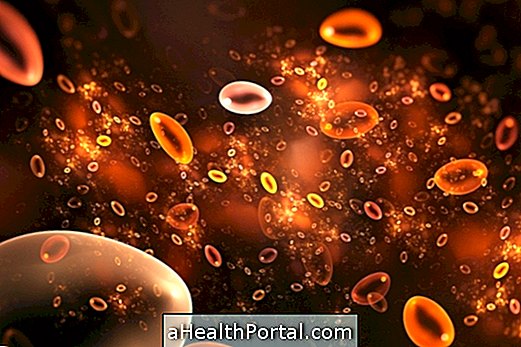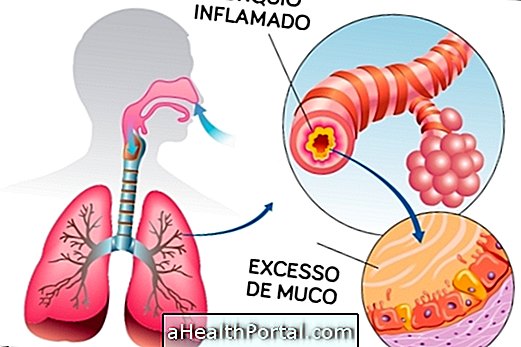Anemia does not turn into leukemia, but can be dangerous in pregnancy and in some cases can lead to death. In addition, it can be so severe that it is called deep and in some cases can lead to weight loss.
Anemia causes symptoms such as tiredness, pallor, hair loss and weak nails, and is diagnosed in a blood test that evaluates the values of red blood cells. This disease is common in Brazil and has several types that may be related to poor diet, low iron consumption, or due to genetic changes that can be discovered through examinations.
Some common doubts about anemia are answered here.

1. Can anemia turn into leukemia?
No. Anemia can not turn into leukemia because these are very different diseases. What happens is that anemia is one of the symptoms of leukemia and sometimes you need to do tests to make sure it is just an anemia, or if it really is a leukemia.
The blood test that shows hemoglobin, which is red blood cells, low indicates anemia, but in case of leukemia, in addition, leukocytes, which are white blood cells, are high but are defective. This indicates that the diseases have different causes and so no anemia can turn into leukemia, even in the case of profound or long-lasting anemia. Check the symptoms of leukemia.
2. Is pregnancy anemia dangerous?
Yes. Anemia is a common situation in pregnancy but it is dangerous because it can hinder baby's weight gain, pre-mature delivery, neonatal anemia, developmental failure due to anemia and poor intellectual development. In addition, the woman becomes very tired and may become dizzy when she has anemia. These dizziness may favor falling, which can harm the baby's life.
Anemia arises in pregnancy because there is a greater need for blood to supply the body, both mother and baby, so it is important to consume enough iron-rich foods at this stage. When anemia is diagnosed in pregnancy, depending on the values found, the obstetrician may indicate taking iron supplements. See also: How to treat anemia in pregnancy.
3. Does anemia get fat or lose weight?
The lack of hemoglobin in the blood is not directly linked to weight gain or loss. But the anemia has as symptom the lack of appetite and in this case, with the treatment there is a normalization of the appetite, being possible to ingest a greater quantity of calories, which can lead to the increase of the weight. In addition, iron supplements usually cause constipation, and this can make the belly more swollen but to fight it, simply consume enough fiber and drink more water to soften the stool.
4. What is deep anemia?
The person has anemia when hemoglobin values are below 12 g / dl in women and below 13 g / dl in men. When these values are really very low, below 7 g / dl it is said that the person has deep anemia, which has the same symptoms as, discouragement, frequent tiredness, pallor and weak nails but much more present and easy to be observed. Treatment for deep anemia should be done with a diet rich in iron and taking iron medicines. Check the tests that confirm the anemia.
5. Can anemia lead to death?
Iron deficiency anemia that is the most common does not lead to death or leukemia, but there is another type of anemia called aplastic anemia, which is a genetic disease, which if not treated properly can lead to death in less than 1 year the presence of recurrent infections. It is therefore important to go to the doctor and perform tests whenever any unpleasant symptoms arise and perform the necessary treatment.
